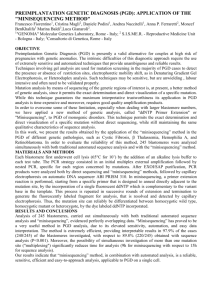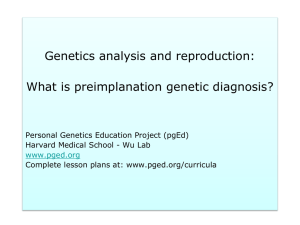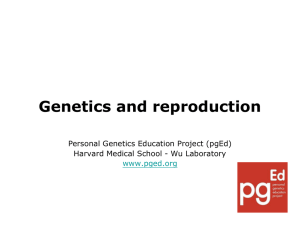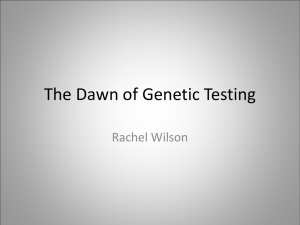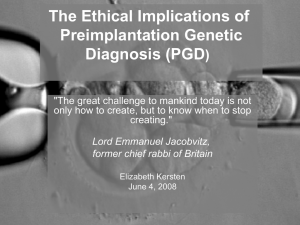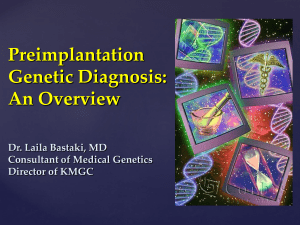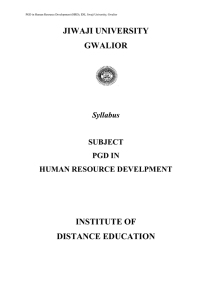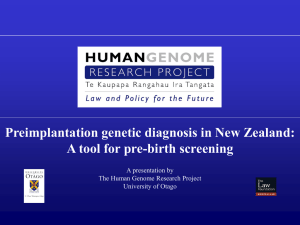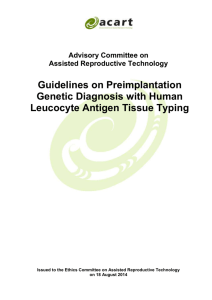Preimplantation genetic diagnostic
advertisement
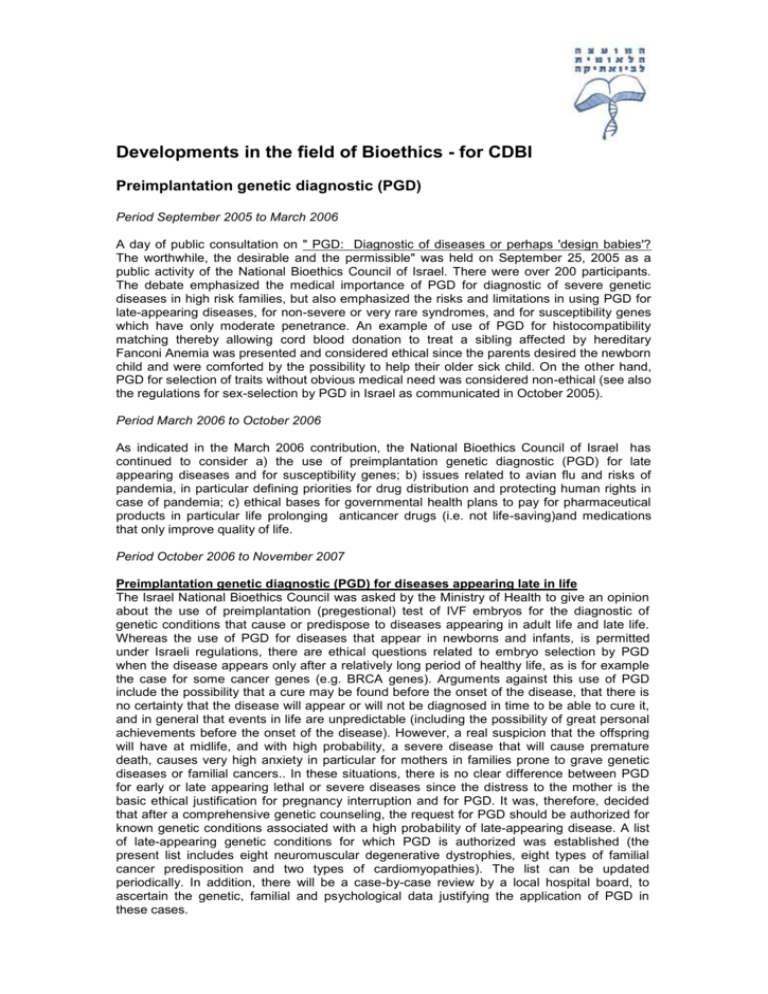
Developments in the field of Bioethics - for CDBI Preimplantation genetic diagnostic (PGD) Period September 2005 to March 2006 A day of public consultation on " PGD: Diagnostic of diseases or perhaps 'design babies'? The worthwhile, the desirable and the permissible" was held on September 25, 2005 as a public activity of the National Bioethics Council of Israel. There were over 200 participants. The debate emphasized the medical importance of PGD for diagnostic of severe genetic diseases in high risk families, but also emphasized the risks and limitations in using PGD for late-appearing diseases, for non-severe or very rare syndromes, and for susceptibility genes which have only moderate penetrance. An example of use of PGD for histocompatibility matching thereby allowing cord blood donation to treat a sibling affected by hereditary Fanconi Anemia was presented and considered ethical since the parents desired the newborn child and were comforted by the possibility to help their older sick child. On the other hand, PGD for selection of traits without obvious medical need was considered non-ethical (see also the regulations for sex-selection by PGD in Israel as communicated in October 2005). Period March 2006 to October 2006 As indicated in the March 2006 contribution, the National Bioethics Council of Israel has continued to consider a) the use of preimplantation genetic diagnostic (PGD) for late appearing diseases and for susceptibility genes; b) issues related to avian flu and risks of pandemia, in particular defining priorities for drug distribution and protecting human rights in case of pandemia; c) ethical bases for governmental health plans to pay for pharmaceutical products in particular life prolonging anticancer drugs (i.e. not life-saving)and medications that only improve quality of life. Period October 2006 to November 2007 Preimplantation genetic diagnostic (PGD) for diseases appearing late in life The Israel National Bioethics Council was asked by the Ministry of Health to give an opinion about the use of preimplantation (pregestional) test of IVF embryos for the diagnostic of genetic conditions that cause or predispose to diseases appearing in adult life and late life. Whereas the use of PGD for diseases that appear in newborns and infants, is permitted under Israeli regulations, there are ethical questions related to embryo selection by PGD when the disease appears only after a relatively long period of healthy life, as is for example the case for some cancer genes (e.g. BRCA genes). Arguments against this use of PGD include the possibility that a cure may be found before the onset of the disease, that there is no certainty that the disease will appear or will not be diagnosed in time to be able to cure it, and in general that events in life are unpredictable (including the possibility of great personal achievements before the onset of the disease). However, a real suspicion that the offspring will have at midlife, and with high probability, a severe disease that will cause premature death, causes very high anxiety in particular for mothers in families prone to grave genetic diseases or familial cancers.. In these situations, there is no clear difference between PGD for early or late appearing lethal or severe diseases since the distress to the mother is the basic ethical justification for pregnancy interruption and for PGD. It was, therefore, decided that after a comprehensive genetic counseling, the request for PGD should be authorized for known genetic conditions associated with a high probability of late-appearing disease. A list of late-appearing genetic conditions for which PGD is authorized was established (the present list includes eight neuromuscular degenerative dystrophies, eight types of familial cancer predisposition and two types of cardiomyopathies). The list can be updated periodically. In addition, there will be a case-by-case review by a local hospital board, to ascertain the genetic, familial and psychological data justifying the application of PGD in these cases.
